I fell behind with my reading on travel and place at the start of this year. Why? Because I was trying to understand what’s behind the rise of right-wing authoritarianism, and figure out what we can do to resist it. I can thoroughly recommend books on that urgent subject by Anne Applebaum (Twilight of Democracy; Autocracy Inc), Timothy Snyder (The Road to Unfreedom; On Freedom) and Ece Temelkuran (How to Lose a Country: The Seven Steps from Democracy to Dictatorship).
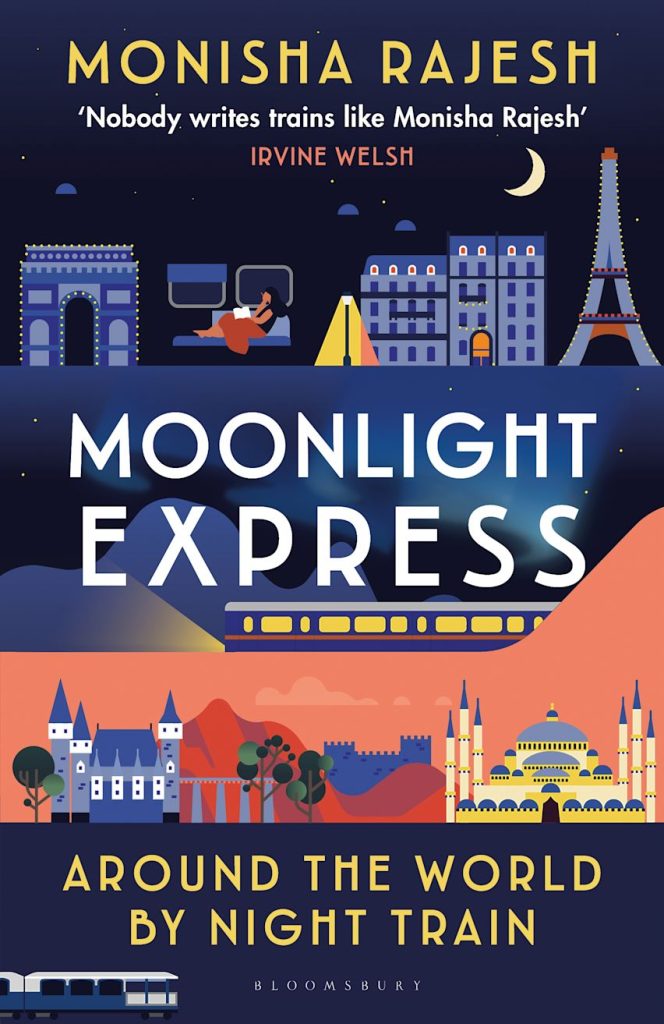
In one of the best travel books I did read, I heard from a man who is deeply worried that history is repeating itself. “People,” he says, “have to know about the barbarity of yesterday so they can defend the democracy and freedom of today.” That man is Simon Gronowski, a Jewish survivor of the Holocaust. At the age of 11, he was dropped by his mother to the tracks from a train that had halted in the dark on the way to Auschwitz. Gronowski was interviewed by Monisha Rajesh during one of her stops on a journey round the world for Moonlight Express (Bloomsbury, £22), a celebration, but a far from saccharine one, of “the rumble of sleeper trains returning to the tracks”.
How do you write about that rumble if you hate being alone at night? You travel with friends or family. But surely a travel writer, to produce anything worth reading, must travel alone…? Not for the first time, Rajesh gives the lie to that notion. She shares journeys, compartments and experiences everywhere from Scotland to Peru. But she never stops being “a thermals-wearing weirdo with a notepad”. Whether she’s travelling with a journalist friend through Turkey, or with her husband and daughters on the Santa Claus Express in Finland, she’s always a reporter, chatting up staff from drivers to chefs, and deliberately sitting near the passengers who look most likely to talk.
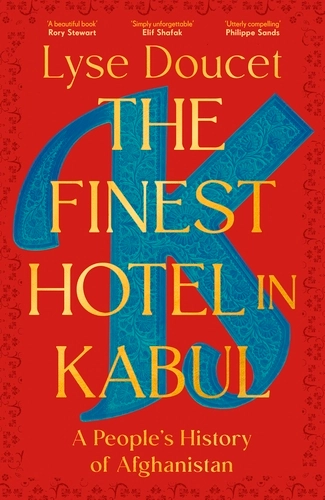
It’s through the recollections of the staff that Lyse Doucet, chief international correspondent of the BBC, offers a compelling people’s history of Afghanistan in The Finest Hotel in Kabul (Hutchinson Heinemann, £25). She first checked into the InterContinental in 1988 to cover the withdrawal of Soviet troops. In the decades since, she has witnessed a civil war, the post- 9/11 US-led invasion, and the rise, fall and rise of the Taliban. But in her first book, a third-person account combining her usual journalistic rigour with novelistic touches (“he bowed his head… and smiled inside”), it’s through the eyes of the staff that we see everything, from a freshly made bed to the storming of the building by suicide bombers. In her tribute to “a people who have suffered all too long… but still keep their remarkable sense of humour, hospitality and self”, Doucet is a minor character.
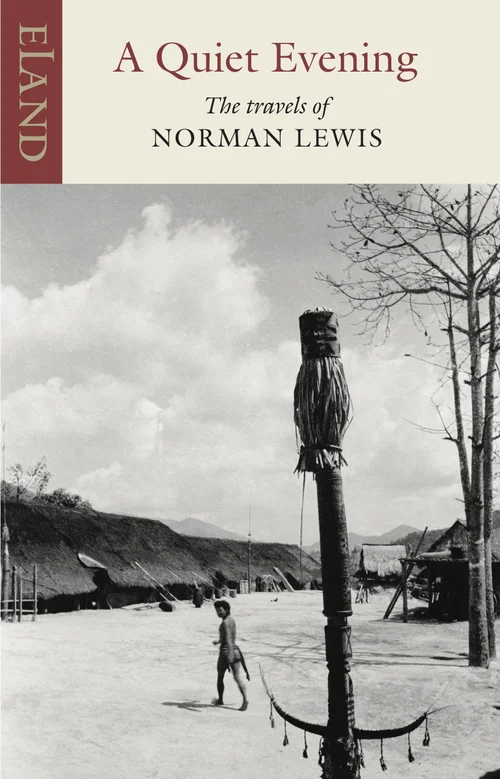
Norman Lewis (1908-2003) would have approved. He prided himself on being an observer who went unnoticed. “I’m probably one of the few people,” he said, “that can actually enter a room and leave it, and nobody will know that I’ve been there.” We’re reminded where he’s been, though, by 30 books, several of them classics of travel literature. And now, thanks to John Hatt, founder of the publisher Eland, we have an anthology of his best feature articles: A Quiet Evening: The travels of Norman Lewis (Eland, £25). Among them are an interview with an American who served as an executioner under Castro in Cuba, portraits of Ibiza before the arrival of tourists, and his investigation into the genocide of indigenous communities in Brazil (which prompted the foundation of Survival International). I already had a dozen of Lewis’s books on my shelves, but this is a worthy addition.

Key “American road trip” into a much-used search engine and you’ll get results assuming you’ll be driving a car. Joanna Pocock is a writer who overturns assumptions. In 2006, following three miscarriages and the death of her sister, she travelled by bus from Detroit to Los Angeles. In 2023, post pandemic, she retraced that journey, taking with her Simone de Beauvoir’s America Day by Day — the only book she could find by a woman about crossing the US, and the only one powered by buses. “I was looking to rediscover the places I had been to,” she says, “to gauge my reaction to them, to inhabit a strange landscape of alternating recognition and surprise. One trip was about fleeing; the other was a pilgrimage of sorts.” In Greyhound (Fitzcarraldo Editions, £14.99), she’s a pilgrim in a far-from-sacred space. The camaraderie among passengers that lifted her spirits on her first trip is still there, but wearing thin, as is care for customers. Thanks to the “appification” of travel, staff are scarce; cafés and restrooms are closed and sometimes whole stations have been sold off to developers. In Phoenix — where temperatures topped 43C for the whole month of July in 2023, and 300 people died from heat-related causes — she has to wait for a bus to Las Vegas by a six-lane highway. Greyhound is partly memoir, partly literary criticism, partly environmental warning — and wholly absorbing.
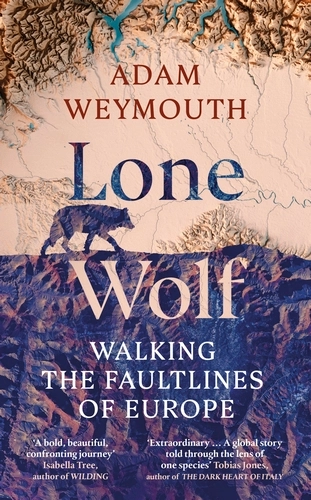
In his acclaimed debut, Kings of the Yukon, Adam Weymouth canoed the length of the river, looking into the decline of the king salmon and showing how the lives of those who depend on the fish are changing. In his latest book, Lone Wolf (Hutchinson Heinemann, £18.99) — which was short-listed, with The Finest Hotel in Kabul, for the £50,000 Baillie Gifford Prize for Non-Fiction— he fixes on a creature whose population is increasing, and asks what that might mean for Europe.
He follows in the footsteps of Slavc, a wolf tracked by GPS making a thousand-mile journey through the Alps from Slovenia to northern Italy; and he does it during the continent’s hottest summer on record, when the impacts of war and weather are driving farmers off the land and — elsewhere — driving migrants into Europe. On the trail, Weymouth seems to identify closely with Slavc, but wherever he stops he listens to all those with a view on the wolf’s return, including a wildlife biologist turned farmer “who has a welly in both worlds”. Lone Wolf is another triumph.
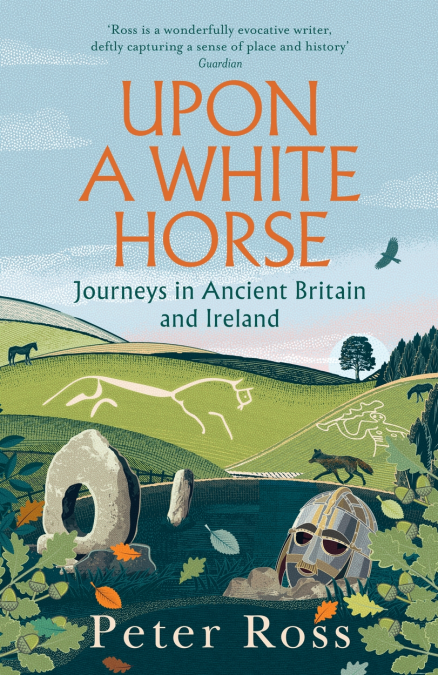
The book that gave me the most straightforward pleasure this year is by a writer whose work, I’m ashamed to say, was new to me. Peter Ross has published portraits of Britain through its churches (Steeple Chasing) and its graveyards (A Tomb With a View). In Upon A White Horse (Headline, £22), he travels round prehistoric sites in both Britain and Ireland, asking who made these structures and why, and what they mean to us now. He talks to archaeologists and druids, to volunteers who care for ancient places and to the builders of more modern monuments, among them a stone circle in Somerset, erected in memory of a girl who died at 15 in 2019, and a long barrow in Wiltshire, which is serving as a site of communal burial.
Ross got his passion for archaeology from a grandfather, who took him on digs at ruined castles and chambered cairns. At the age of 10 he held a tooth that had belonged to someone who had lived and died during the Bronze Age. “Really,” he says, “I should have become an archaeologist rather than a writer.”
That would have been a loss. Archaeology, he observes, “is both science and art. The facts are not enough; a narrative must be woven around them.” Ross is a master weaver.

Leave a Reply